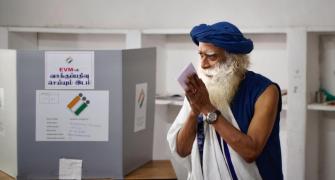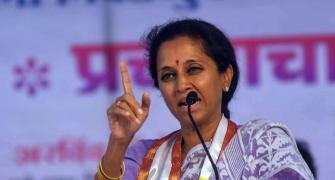He was delivering a keynote address on the first anniversary of the signing of the treaty organised by the Confederation of Indian Industries in New Delhi on Tuesday.
"(Indian foreign secretary) Shyam Saran is right when he says that if in future any government chose to test a nuclear device then a new world would emerge and would have to be dealt with by the new dispensation. "The US would be forced to impose sanctions against India. Even the US President is not empowered to change the rules that allow only five nuclear states to test. Of course the treaty would collapse," he said when leading defence expert Bharat Karnad asked Tellis why he had chosen not to highlight this aspect of the treaty. Tellis is a non-proliferation expert.
Tellis defended
the treaty and said that it was interest of both India and the US but pointed to growing criticism from certain quarters in both countries. There is a group on either side that says they have got nothing to gain from the deal.
"Indo-US disagreement is over 30 years old and the consequences of disagreement is the non-proliferation regime and export controls that left India out in the cold. The non-proliferation regime served global US interests but not the cause of US-India relations. The civil nuclear cooperation agreement was designed to correct this anomaly," he said.
He pointed out that US-Indian cooperation would take care of only 3 per cent of the needs of the Indian energy sector. But what is important is whether India should burn the maximum coal or burn optimum coal to meet its energy demands by using other means to produce electricity.
According to the calculations if India is to sustain 8 per cent growth until 2015 then it would require 25,000 MW of installed capacity vs the current 12,000 MW from all sources and the deficit of 13,000 MW would have to be met somehow.






